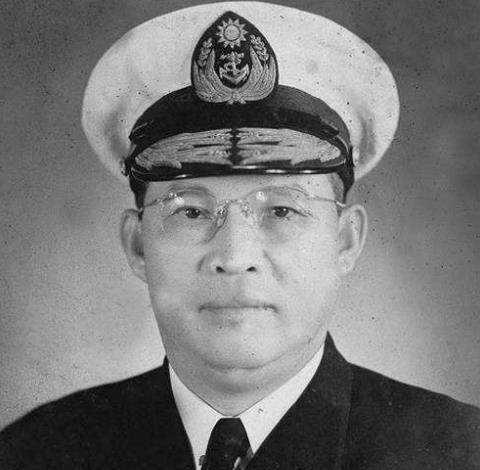This battle completely confused Gui Yongqing, and he didn't even dare to answer the phone from his superiors, and finally someone else helped wipe his ass
Gui Yongqing was a native of Guixi, Jiangxi Province, a student of the Huangpu Phase I, who trained hard during his studies and was deeply appreciated by the chief instructor He Yingqin; he led the troops sternly, and his diary contained the phrase "leading by example, fighting well; not leading by example, soldiers are difficult to bring", often using it to encourage himself, Chiang Kai-shek also nodded his head and said yes. In 1927, when Gui married her lover, Ms. He Xiangyin, He Yingqin was a witness to the marriage, and Chiang Kai-shek specially sent a congratulatory gift of 500 silver dollars.

Gui Yongqing was sent by Chiang Kai-shek to the German Infantry College for further study in 1931. Like Qiu Qingquan, he not only studied fascist military training methods in Germany, but also moved the soldiers' absolute loyalty and absolute obedience to Hitler to China in order to cultivate the worship of Chiang Kai-shek by the Kuomintang soldiers, and in Gui's office, photographs of Hitler and Chiang Kai-shek hung side by side on the wall.
Chiang Kai-shek was of course very gracious to such protégés, and when the "Central Military Academy Teaching Corps" was established, Gui Yongqing was appointed as the commander-in-chief. But now he has lost the strategic land of Lanfeng, ashamed and embarrassed, he wants to regain not only the lost land, but also his dignity and glory! On the morning of May 24, Under the cover of artillery fire, Gui Yongqing's command post launched a simultaneous charge at Lanfeng from both the west and the south, but the Japanese army desperately blocked the attack, and the battle did not see any progress.
In the afternoon, Chiang Kai-shek called and ordered Gui Yongqing to step up the siege of the city without delay. The next day, when Guibu risked his life to attack the city, Chiang Kai-shek called again, limiting Gui Yongqing to capture Lanfeng within a day, overdue, but the commander asked. Chiang Kai-shek's tone was as hard as steel nails, and it was fiercely nailed to Gui Yongqing's heart. Gui Yongqing did not have anything to do, and he was sweating profusely, and he still did not recover LanFeng that day.
On the third day, Chiang Kai-shek called several times in a row to inquire about the situation of the battle, but the deadline for the military order had expired, and Gui Yongqing was so frightened that he did not dare to reach out and answer the phone! His heart was weak and his legs were weak, his hands were shaking like chaff on a sieve, and finally he simply walked out of the military headquarters and personally went to the front line to supervise the battle. On this day's battle, the earthen walls turned red, the corpses were piled up, and the 46th Division was almost killed or wounded, while most of the city of Lanfeng, except for some enemies who escaped, were still waiting for help.
Chiang Kai-shek sternly rebuked Gui Yongqing, and the gray-headed Gui Yongqing said in a hoarse voice: "Principal, in this attack, the commander of our 46th Division and the regimental commander suffered two casualties each, the battalion commander lost nine casualties, and the officers and men below the company suffered more than 5,000 casualties. At this point, the 28th Army was really unable to hold out any longer, and Chiang Kai-shek, who had returned to Wuhan, had no choice but to withdraw to the west of Zhengzhou to rest and stand by.
A few days later, Guibu arrived at the Luoyang White Horse Temple, and Jiang's telegram also arrived. The telegram reads as follows: "The 28th Army attacked Lanfeng ineffectively, the commander Gui Yongqing was dismissed, and the 88th Division Long Muhan neglected his duties and released the enemy, and was immediately escorted to Wuhan for execution." Li Liangrong, commander of the 46th Division, was dismissed from his post and remained in office, and Dai Sin Tugong ..." Gui Yongqing was paralyzed and withdrew, Xue Yue hated the Tufeiyuan division that had broken into his encirclement, and he wanted to make a final effort to take LanFengcheng and annihilate Tufeiyuan. On the 27th, he redeployed his forces, ordering Song Xilian's 71st Army to besiege Lanfeng with all its strength, and other parts of the army attacked Xingyi Village, Quxingji, Luo wangzhai and other enemy strongholds.
After three days and nights of fierce fighting, Song Xilian's troops finally regained the blood-stained Lanfeng City with my invincible courage, the enemy abandoned weapons and countless corpses, and the warriors gave Song Xilian a captured fat horse, and later Song Xilian often rode it to command the battle, and its name was called "Tufeiyuan".
Information "Blood Battle of Wuhan"